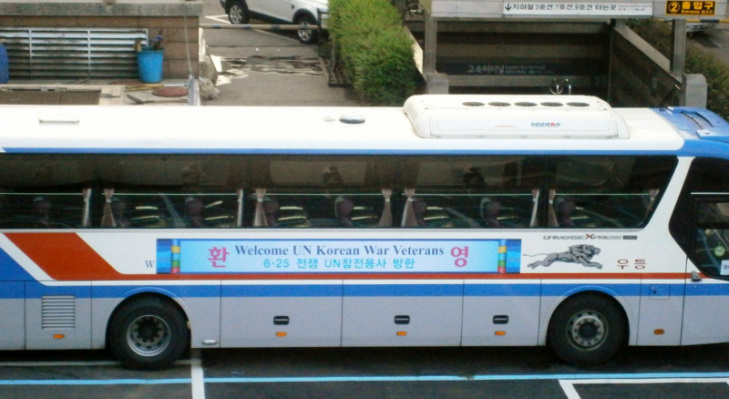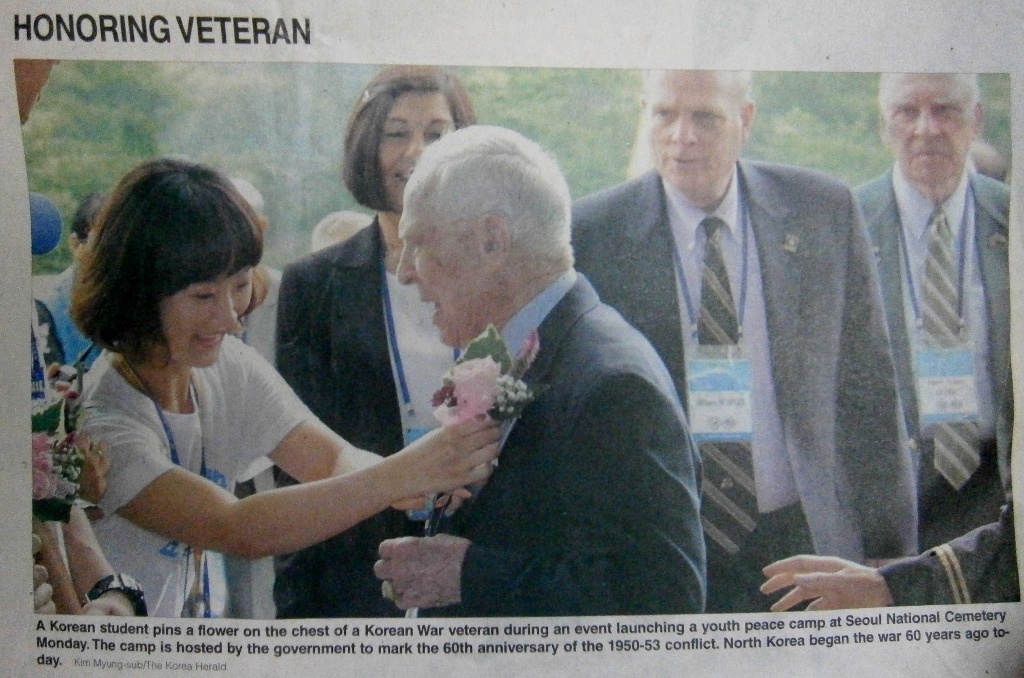Outside the bus station, I saw this:
The English on the banner is: “Welcome UN Korean War Veterans”
The Korean on the banner is: “환영 — 6-25전쟁 UN참전용사 방한”
(1) 환영: Welcome
(2) 6-25전쟁 (육이오전쟁): “Six-Two-Five War”. [This is the name most commonly used in South Korea for this war, because it began on June 25th. I’ve always thought that to be a strange way to name a war, after it’s starting date. I can’t think of an example of that from Western history. They also use the term “Korean War”, but less commonly. Every Korean knows what “6-25” means, but most 7th-12th grade students don’t know that it was June 25th of 1950!]
(3) UN참전: Participation in the War by the United Nations [UN]
(4) 용사: Brave Men; Heroes
(5) 방한: Visit (for Pleasure?) to Korea
참전: Participation in the(/a) War
용사: Brave Men; Heroes
Combining those two words, i.e, “참전 용사” (cham-juhn-yong-sa) equals the word “veteran(s)”, I see from my (still-working) cell-phone dictionary. It’s not just a “participating in a war” thing, but a “bravery”/”heroic” component. This is not the case in English.
Etymology of the word “veteran” in English: “1495–1505; < Latin veterānus mature, experienced.”
I wonder what the word in English for “participant in a former war” was before somebody grabbed the Latin word.


